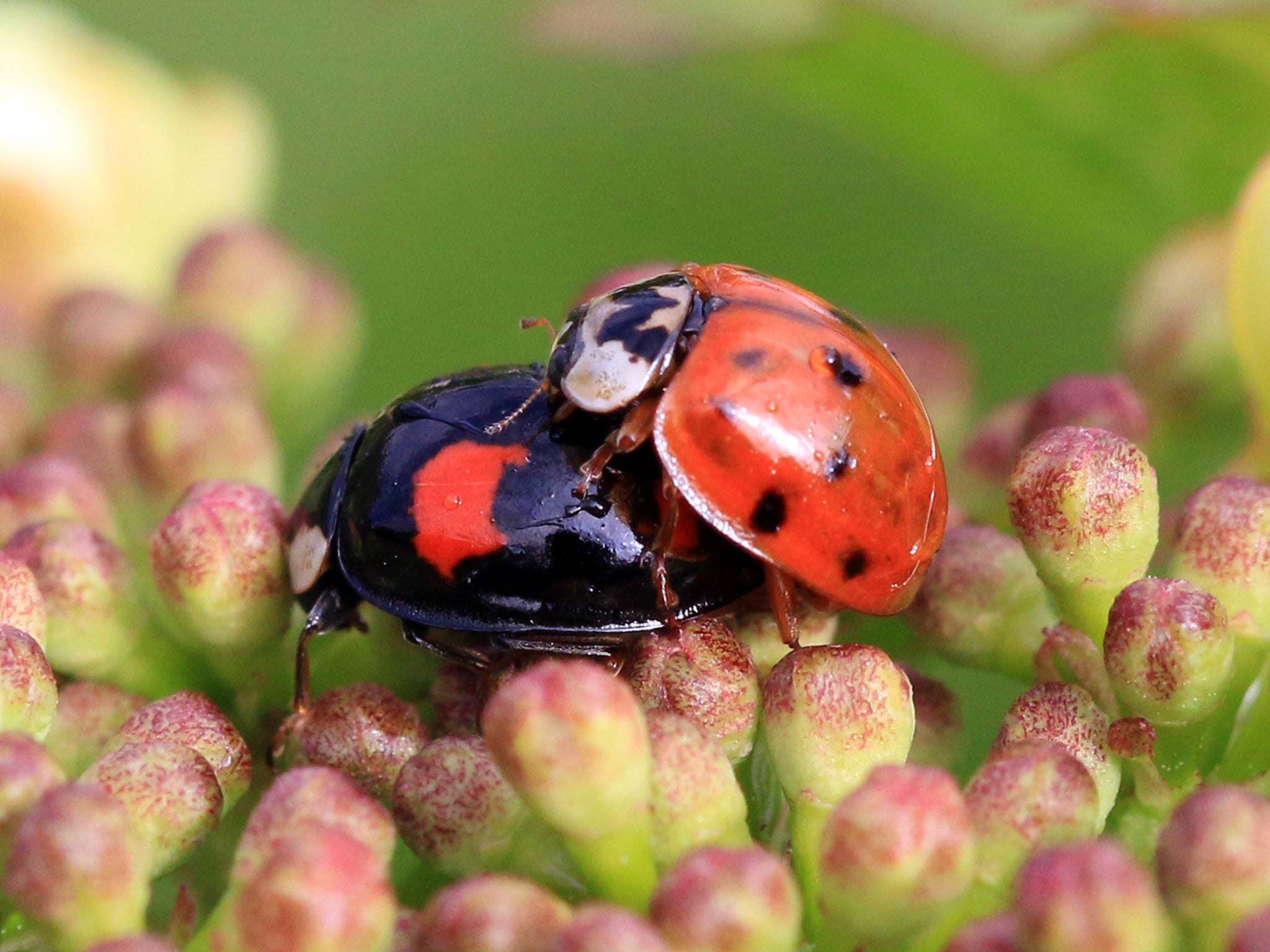Cannibal harlequin ladybirds now threaten native species with STDs
Scientists have warned about the unknown effect this fungal infection may have on the already beleaguered native population

Cannibal harlequin ladybirds are posing a new threat to Britain’s native species after scientists warned the variety was spreading a virulent sexually transmitted fungal infection.
Scottish scientists are concerned the insect fungus, which is transmitted primarily through mating, may be passed onto native species from the non-indigenous type with unpredictable consequences, the Scotsman reports.
Many harlequin ladybirds are already suffering from the Laboulbeniales fungal infection, according to studies conducted by the University of Stirling’s departments of biological and environmental sciences with the Centre for Ecology and Hydrology.
Researcher Matt Tinsley said: “The study will allow us to know where this fungus has spread to and what proportion of native and invasive ladybirds are infected.”
The number of harlequin ladybirds has greatly increased in recent years after they were first seen in the UK in 2004 when they were imported to Europe from East Asia for commercial pest control of crops.
Since the arrival of the harlequins, the two-spotted population has declined by as much as 30 per cent, due in no small part to the thuggish ladybird’s diet.
The larger ladybird, officially known as Harmonia axyridis, does not eat only one type of food (as other ladybird breeds do) instead consuming aphids, greenfly, lacewings, hoverflies – and even other ladybirds.
In a study reported in the Daily Mail earlier this year, researchers noted the harlequin – which has become the second-most populous ladybird in the UK – was damaging the delicate diversity of the UK’s ladybird population.
The insects are brightly coloured because they contain defensive toxic chemicals, but the harlequin’s possesses strong toxins than any of the 47 breeds already native to Britain.
Dr Peter Brown, of Anglia Ruskin University in Cambridge, said: “The results offer further evidence the harlequin is a generalist predator which is having a damaging effect on native species across Europe.”
Join our commenting forum
Join thought-provoking conversations, follow other Independent readers and see their replies
Comments